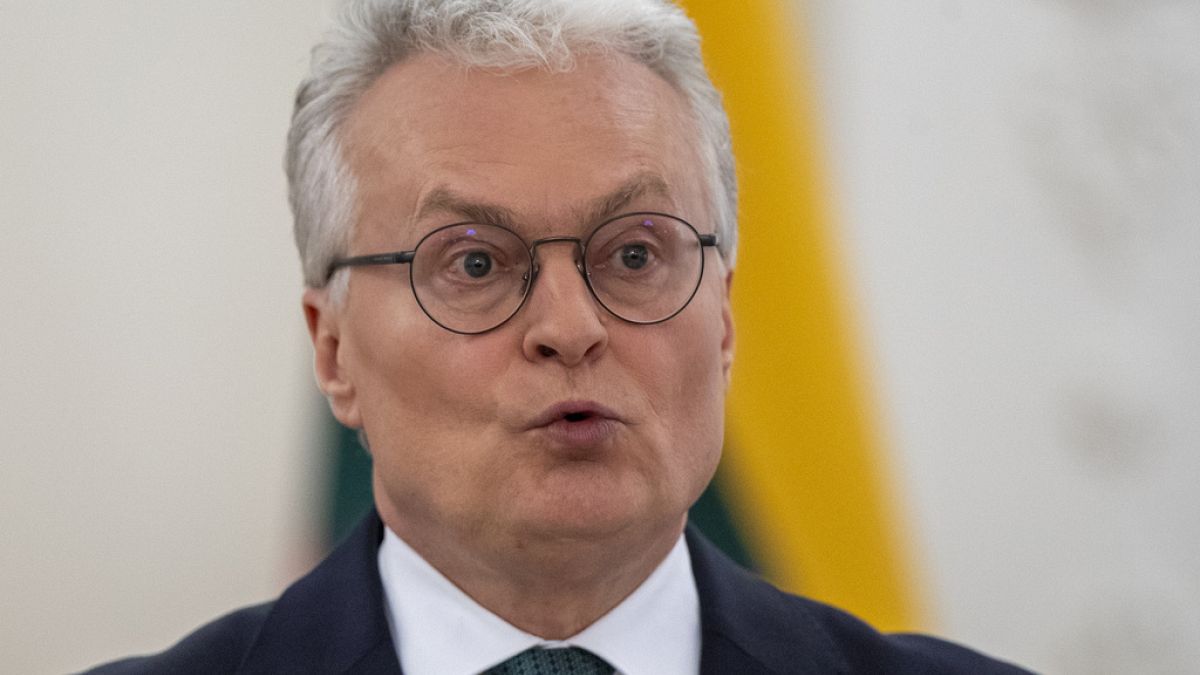Popular incumbent, Gitanas Nausėda, is favoured to win another five-year term in a strategically important election for the Baltic region.
Lithuania is holding a presidential election on Sunday at a time when Russian gains on the battlefield in Ukraine are fueling greater fears across all of Europe about Moscow's intentions, particularly in the strategically important Baltic region.
The popular incumbent, Gitanas Nausėda, is favoured to win another five-year term. But eight candidates are running in all, making it unlikely that he or any other candidate can win the 50% of the votes needed to win outright on Sunday. In that case, a runoff would be held two weeks later on 26 May.
The president's main tasks in Lithuania's political system are overseeing foreign and security policy, and acting as the supreme commander of the armed forces. Those duties and the nation's strategic location along NATO's eastern flank amid a larger geopolitical standoff between Russia and the West add heft to the role despite Lithuania's relatively small size.
Concern over Russia
There is great concern in Lithuania and in neighbouring Latvia and Estonia about Russia's gaining momentum in Ukraine. All three Baltic states declared independence after the collapse of the Soviet Union and took a determined westward course, joining both the European Union and NATO.
Nausėda, a moderate conservative who turns 60 a week after Sunday's election day, has been a strong backer of Ukraine, a position shared across most of the political spectrum. During his time in office, Lithuania has also given refuge to many who have fled an authoritarian crackdown in neighbouring Belarus and increased repression in Russia.
Nausėda, a former banker who entered politics with his successful presidential run in 2019, is seen as the "safe choice for voters of almost all ideological persuasions," said Tomas Janeliūnas, an analyst at Vilnius University's Institute of International Relations and Political Science.
Polls show that his main opponents are Ignas Vėgėlė, a populist lawyer, who is in second place according to recent opinion polls, and Prime Minister Ingrida Šimonytė, who is in third place in the surveys.
While both Nausėda and Šimonytė are strong advocates of greater military spending and big supporters of Kyiv, several other candidates call aid to Ukraine an invitation for Russia to invade Lithuania.
Vėgėlė's comments on the issue of aid to Ukraine have sometimes been vague, and he has mocked those who advocate increasing defence spending to 4% of gross domestic product, double NATO's target.
Referendum on dual citizenship
A referendum is also to be held on Sunday. It asks whether the constitution should be amended to allow dual citizenship for hundreds of thousands of Lithuanians living abroad.
Lithuanian citizens who adopt another nationality must give up their Lithuanian citizenship, creating vulnerabilities for a nation whose population has fallen from 3.5 million in 1990 to 2.8 million.
If it passes, the parliament could amend the 1992 Constitution so people who have acquired Lithuanian citizenship by birth can keep it if they gain citizenship of another country "friendly to Lithuania."
A similar attempt to change the fundamental law failed in 2019 because turnout was below the required 50% of registered voters to be valid.


